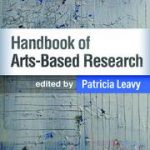
FHSS’ Prof Lee-Ann Fenge & Dr. Kip Jones
FHSS’ Kip Jones and Lee-Ann Fenge are pleased to announce that their article , “Gift Stories How Do We Retell the Stories that Research Participants Give Us?” is now available across several platforms. Along with the open-access version from Creative Approaches to Research now being available, it can be downloaded on Academia.edu and BRIAN.
Jones and Fenge comment: “We can no longer afford to ignore the great advances made in representation of qualitative data. These have been overwhelmingly demonstrated by the successes achieved in auto-ethnography, poetic enquiry, ethno-drama, film, Performative Social Science and/or other arts-based efforts in research and dissemination”.
Narrative methods contribute greatly to the advances made in qualitative research. A narrative style should also be promoted in publications and presentations. This study on older LGBT citizens in rural Britain highlights this by means of a report on one part of that study—a Focus Group.
Narrative researchers are natural storytellers and need to foreground this when reporting studies for publication. Qualitative research is always about story reporting and story making, and narrative research (listening to and retelling stories) is a key democratising factor in qualitative social science research.
 Methodspace highlights BU Academics’ Innovative Approach to Reporting Focus Group Data
Methodspace highlights BU Academics’ Innovative Approach to Reporting Focus Group Data CQR Narrative Group Welcomes a Student Research Assistant
CQR Narrative Group Welcomes a Student Research Assistant New Chapter on “Film as Research/ Research as Film” from Hearing and Jones
New Chapter on “Film as Research/ Research as Film” from Hearing and Jones










 Beyond Academia: Exploring Career Options for Early Career Researchers – Online Workshop
Beyond Academia: Exploring Career Options for Early Career Researchers – Online Workshop UKCGE Recognised Research Supervision Programme: Deadline Approaching
UKCGE Recognised Research Supervision Programme: Deadline Approaching SPROUT: From Sustainable Research to Sustainable Research Lives
SPROUT: From Sustainable Research to Sustainable Research Lives BRIAN upgrade and new look
BRIAN upgrade and new look Seeing the fruits of your labour in Bangladesh
Seeing the fruits of your labour in Bangladesh ECR Funding Open Call: Research Culture & Community Grant – Apply now
ECR Funding Open Call: Research Culture & Community Grant – Apply now ECR Funding Open Call: Research Culture & Community Grant – Application Deadline Friday 12 December
ECR Funding Open Call: Research Culture & Community Grant – Application Deadline Friday 12 December MSCA Postdoctoral Fellowships 2025 Call
MSCA Postdoctoral Fellowships 2025 Call ERC Advanced Grant 2025 Webinar
ERC Advanced Grant 2025 Webinar Update on UKRO services
Update on UKRO services European research project exploring use of ‘virtual twins’ to better manage metabolic associated fatty liver disease
European research project exploring use of ‘virtual twins’ to better manage metabolic associated fatty liver disease
Qualitative data provides a rich, detailed picture to be built up about why people act in certain ways, and their feelings about these actions therefore i support this initiative. keep up the spirit.